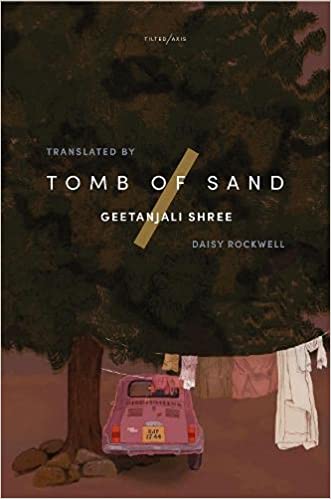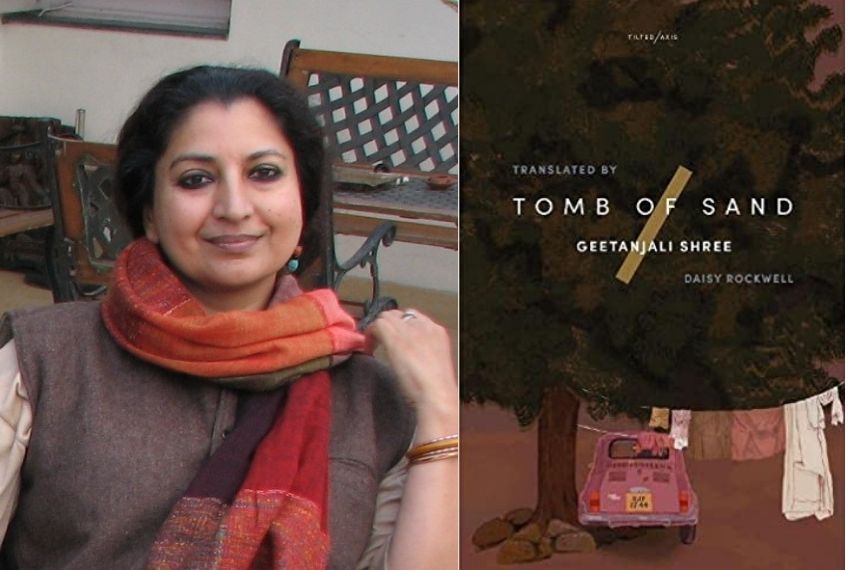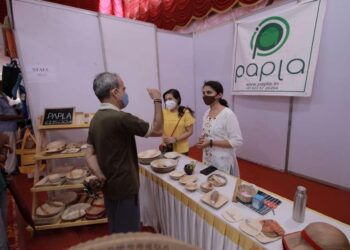Whenever Geetanjali Shree was a little girl, her mother would frequently make light of the fact that she preferred to tell tales rather than listen to others tell them. Her most recent novel, Ret Samadhi, was just shortlisted for the Man Booker International Prize. She is now a well-established Hindi novelist.
Geetanjali, the great author of five Hindi novels and five short tales, began her literary career when she was nine years old and hasn’t stopped since. “I was always attracted by tales and had a strong desire to create my own,” Geetanjali explains in an interview with Global Indian magazine.
“As children, my mother would tell us tales from her own life. In addition, since my father was a bureaucrat, we had a number of people working for us in our home as well. While growing up, I recall listening to the tales told by those women. I was entranced by the way words could conjure up a whole other universe, which was completely captivating. Unfortunately, I do not have those tales, but I am intrigued to know what I was writing at the time,” says the author, who lives in Delhi.

For the love of the Hindi language
While growing up in numerous towns in Uttar Pradesh in the late 1950s and early 1960s with her four siblings, the author, now 64, recalls that it was the colorful culture and language of those communities that served as a basis for her writing. Although she attended an English-medium school, the paucity of English-language children’s books turned out to be a “gift in disguise” for her since she was able to read them in her own tongue.
The Ramayana and the Mahabharata were among the tales I first encountered when I was a boy, and these stories led me on to the Arabian Nights, Panchatantra, Kathasaritsagaara, and Chandrakanta Santati, among other works. “I’m not sure whether I would have been able to create these novels if I hadn’t had this upbringing,” says the author, who is undoubtedly inspired by her historian spouse.
Even after relocating to Delhi to pursue a bachelor’s degree in history at Lady Shri Ram College, Delhi University, and then a master’s degree at Jawaharlal Nehru University, Geetanjali felt a strong pull toward Hindi literature and literature in general. “While in JNU, I was quite certain that I wanted to pursue a career in Hindi literature. My dissertation subject was Hindi literature that represented the nationalist thinking of the pre-Independence years, and I chose Prem Chand and his works as my primary source of inspiration.”
Slow and steady wins the race.
Geetanjali considers herself to be a “slow writer,” and she believes that she began her professional writing career a bit late in life. Anugoonj (1991) is her first collection of short stories, which was published in the literary journal Hans. However, it was the release of her short story collection Bel Patra (1987) that propelled her into the limelight of the Hindi literary scene. Following this, numerous additional works by Geetanjali, including Mai (1993), Hamara Shahar Us Baras (1998), Tirohit (2001), and Khl Jagah (2006), appeared on the shelves of bookshops throughout the country.
However, it is her 2018 work Ret Samadhi that has established her as a major international literary figure. As a result of Daisy Rockwell’s recent translation into English, which was titled Tomb of Sand, it has become the first Hindi-language book to be nominated for the International Booker Prize. She describes it as a “proud moment,” and she is pleased with the fact that history has been written for her.
“It is a really proud occasion for me, not just as a writer, but also as an Indian,” says the author. This will result in a greater emphasis on Hindi literature and other Indian languages as a result of this. “We need people to realise that there is a wealth of literature out there waiting to be found,” says the author.
Geetanjali and her favourite author, Krishna Sobti
Ret Samadhi tells the tale of an 80-year-old widow who is melancholy as a result of her husband’s death, which he saw. Eventually, the woman recovers from her sadness and chooses to go to Pakistan in order to face the memories of her childhood that she had left behind after the Partition.
“Actually, it was the picture of a lady in a joint, orthodox, middle-class household, who was sitting with her back turned, that stuck with me for a very long time,” she explains of the much-discussed novel. ” It made me question whether she was turning her back on the people around her, or if she was turning her back on her life. To complete Ret Samadhi, it took me around seven to eight years.”
Geetanjali’s work is not confined to the Hindi literati; she is an author who enjoys engaging in a conversation with her readers across all of her publications. Many of her novels have been translated into many languages, including English, French, and German. The author, on the other hand, does not believe in the practice of selecting her own translator.
“I have never specifically requested a particular author to translate my novels. I consider myself fortunate in that regard since the translators have done an excellent job of representing my work. In reality, I had never met Daisy Rockwell until I heard that she was considering translating Ret Samadhi into English from the Japanese. During our conversation, though, I realised that she had a strong sense of emotions and connections in the novel,” she says with a grin.
Not just a writer, but also a speaker
Despite the fact that she does not consider herself to be a “theatre person,” the author has collaborated with notable actors such as Anuradha Kapur and Kirti Jain on a variety of plays. Geetanjali has written a number of pieces for the theatrical company Vivadi and says she enjoys working in a collaborative atmosphere. To write for the stage is a collaborative effort in which everyone from the director to the performers and others contributes to the overall plot. “This is a way of working that I truly like,” she continues.
When Geetanjali isn’t busy conjuring up spells with words, she enjoys spending time in the company of music. “I like a wide variety of musical styles, including Hindustani classical, old Bollywood, jazz, Baul, and Rajasthani folk,” she says at the end of the interview.









